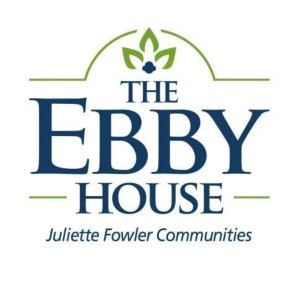
During the 86th Texas Legislative Session, the Ebby House staff and supporters at Juliette Fowler Communities will collaborate with The Texas Network of Youth Services to advocate for important legislation to protect and provide for Texas’ most vulnerable citizens – our children and elderly. The following six initiatives will be the focus of this session. Please consider contacting your legislative representatives to support these policies. Let your elected officials #seeher.
1. Prevent problems before they start by investing in prevention and early intervention (PEI).
- Ensure that effective wrap around prevention and early intervention services are recognized as part of the continuum of evidence based practice.
2. Promote a full continuum of safe, nurturing living arrangements for young people who cannot remain safely at home with their parents.
- Strengthen reimbursement rates for the continuum of foster care services, particularly emergency care services/shelters.
3. Provide services and supports to meet the unique needs of youth/young adults who are homeless.
- Ensure homeless young adults who aged out of foster care are able to access benefits for housing and other supports for up to six months while they are attempting to secure education and/or employment.
4. Ensure cross system youth and youth involved with the juvenile justice system have opportunities for success.
- Require a process for law enforcement to notify and collaborate with Child Protective Services when a 17 year old who is in DFPS custody is arrested.
- Work towards juvenile justice reform that is strengths based and trauma informed.
5. Support the transition of foster youth to adulthood in order to encourage stability and success.
- In order to ensure there is adequate time to arrange housing for youth who will be extending their time in foster care, require Child Protective Service caseworkers to make appropriate arrangements and complete paperwork requirements no later than 6 months in advance of youth turning 18th. Within 90 days of the youth turning 18 qualifications and requirements should be reviewed.
- Waive the requirement for youth who turn 18 and have the needed permission to stay in their current placement to undergo a background check.
- Allow a foster youth who is in care in a placement when they turn 18, to continue sharing a bedroom with a minor child as long as currently existing regulations about safety and a two year maximum age difference apply.
- Require that a placement intending to keep that youth past their 18th birthday, provide a discharge notice no later than 90 days if a foster home and 6 months if it is a General Residential Operation, excluding shelters, or a Residential Treatment Center.
- DFPS should place a child who is 17 years of age and is preparing to age out of foster care to be on a self-medication program guided by a health care professional. If there are documented serious concerns about the child’s ability to do so then the plan must include a detailed plan for how youth are going to receive this education before aging out of foster care.
- Assist youth living in certain Supervised Independent Living (SIL) environments with developing a rental history by requiring contractors to list them as a lease cosigner as long as there is no opposition from the landlord or property owner.
- DFPS must establish a protocol which is implemented no later than the youth’s 17th birthday, to prevent the youth from aging out of a residential treatment center.
- Only with necessary funding from the legislature – Establish and maintain a transitional living services program that includes life skills education for 14-15 year olds and special populations and provides transitional living services case management by regional PAL staff.
- Support DFPS Exceptional Item #5c, a contracted case management rate that would ensure youth with behavioral health needs have the support they need to be successful in a SIL placement.
- Fund Exceptional Item #5a that would allow greater staff capacity to serve youth aging out of foster care through additional Youth Specialists.
- Allocate funding to decrease the Regional Preparation for Adult Living staff workload to create the capacity necessary to prepare young people in foster care for adulthood.
- Address the less than 8% increase in PAL Purchased Services over the last decade by allocating the resources necessary for contractors to effectively prepare youth for independence.
6. Support budget and policy initiatives developed by organizations that strengthen, support, and protect critical services for Texas youth and their families to ensure their success.
- Continue the transformation of the Child Protective Services (CPS) system by fully funding Community Based Care efforts (Exceptional Item #6), particularly the case management rate.
- Strengthen the impact of YES Waiver services on vulnerable children and youth in need of community based mental health services.
- Establish a foster care liaison at institutions of higher education for young adults who are/were in foster care and are now attending college.
- Support DFPS’ funding request for a Kinship Navigator to sustain federal grant funding and draw down additional federal IV-E dollars that will ultimately enhance the ability of kin to care for relative children.
- Support the resources DFPS and providers need for implementation of the Family First Prevention Services Act.
